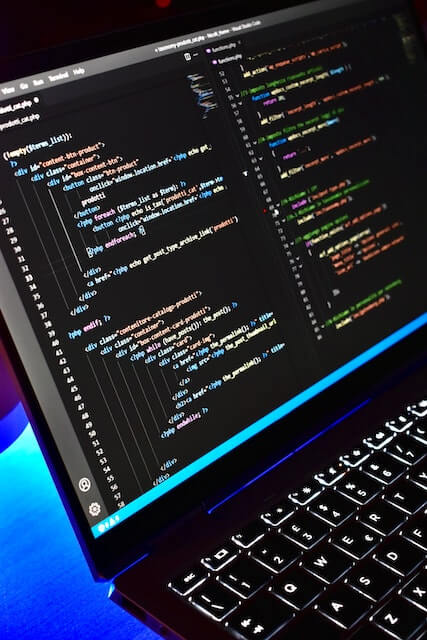
Benefits of Java for Trading Application Development

Java has long been a go-to programming language for trading applications, and the uses of Java for algorithmic trading are immense.
Right now, nearly 85% of all e-banking and trading goes through algo desks powered by Java. The value of Java for trading is immense, and you can tap into it by working with a technology partner with the right expertise in developing trading apps. Experienced developers will help you make the best of this programming language and benefit from its many features tailored toward developing high-volume apps.
In this article, you will learn about the major benefits of Java for trading application development and why it is the preferred choice for many development teams.
Why do companies prefer Java for trading applications?
Java supports Object-Oriented Programming (OOP)
Java is an object-oriented programming language, which allows developers to create modular programs and reusable code. This makes it easier to develop complex trading applications with a variety of features and functionality using Java for trading applications. In fact, Java is a popular choice for high-frequency trading applications due to its scalability and support for multiple platforms. The language is used to create the complex algorithms essential for analyzing large amounts of data quickly.
Java is also used to build the low-level components that interact with financial exchanges in order to execute trades. Additionally, it is great for developing the user interfaces and graphical components needed to visualize the data and trading decisions. Its capability of object-oriented programming makes it easier to run a Java project for trading applications with a high degree of scalability and flexibility. In high-frequency trading, the ability to adjust quickly to changing market conditions is crucial. It is also good to know that Java provides a large number of libraries and frameworks that can be applied to reduce development time and increase code reusability making the use of Java for trading extremely efficient.
Java is platform independent
Java was designed to be platform-independent, which means it can run the same code on multiple platforms. This makes it rather comfortable for developing trading applications that can be deployed on a variety of platforms and operating systems, regardless of the hardware they are using. Additionally, the JVM (Java Virtual Machine) provides a high-performance environment for executing complex algorithms, which makes it a great idea to use Java for trading.
Java also provides an extensive library of APIs that can be used to build trading applications quickly and easily. This makes it easy to develop robust, reliable, and highly scalable applications. Java also offers a wide range of support for different types of data sources and databases, making it easy to integrate with various systems and data sources. For example, traders can easily access historical data and use it in their models and algorithms. This allows traders to quickly and easily develop and deploy their applications, with reasonable effort.
Java is highly secure
Java is a secure language with a built-in security manager, which can be used to ensure that only authorized users can access critical trading data. As a powerful and versatile language, it is a perfect fit for developing high-frequency trading applications. The language’s secure nature allows traders to be sure that only authorized users can access critical trading data, while its speed and scalability make it perfect for carrying out complex operations in a short amount of time.
Java is interoperable
On top of the security benefits, Java is interoperable with other languages, allowing it to easily integrate with existing trading systems and protocols. Using Java for algorithmic trading provides excellent support for threading. This makes it possible for multiple strategies and orders to be executed simultaneously, allowing for faster and more efficient trading. Furthermore, Java’s garbage collection capabilities, which helps with the automatic deletion of unused objects, make it easier to manage memory, reduce latency, and minimize data corruption.
Java is scalable
The high scalability of Java used for trading applications means it can easily handle large amounts of data. Java is also a highly versatile language, which is why it is a popular choice for developing high-frequency trading applications. Its scalability makes it well-suited for dealing with large amounts of data, which is essential in the world of high-frequency trading, where trades are executed in milliseconds. The ability to quickly and efficiently process large amounts of data makes using Java for trading a great choice.
Java is fast
Java can quickly process large amounts of data, which makes it suitable for developing trading applications that can quickly respond to changes in the market. Its ability to quickly process large amounts of data makes it ideal for handling the large volume of trades that are placed within milliseconds in high-frequency trading. The use of Java for algorithmic trading offers the ability to quickly implement complex logic, allowing traders to take advantage of market trends and potential opportunities.
Such functionality enables traders to quickly adjust their strategies to changing market conditions. Its object-oriented design makes it easy to create complex applications, allowing users to quickly respond to make informed decisions. Furthermore, its cross-platform design enables traders to access their trading applications on any device with a Java Virtual Machine.
Final thoughts: Meeting the goals of your Java project for trading
All the benefits of Java make it a perfect language for high-frequency trading thanks to its speed, scalability, and robustness. It enables traders to quickly process large amounts of data, rapidly implement complex strategies, and access their applications on any device with a Java Virtual Machine. As a result, Java is a popular language for high-frequency trading.
Overall, Java is a great choice for high-frequency trading, as it provides a platform-independent environment, high-performance execution, and a wide range of APIs and libraries. This makes it easy to develop and deploy applications quickly and easily, while also providing the reliability and scalability needed for high-performance trading.
With the right software development partner at your side, you can achieve the expected results of your Java project for trading. We at nCube can build your team of Java developers (and other specialists as well) based in Central & Eastern Europe and Latin America. The developers we provide will work on your project on a dedicated remote model. Contact us.
Recommended articles


